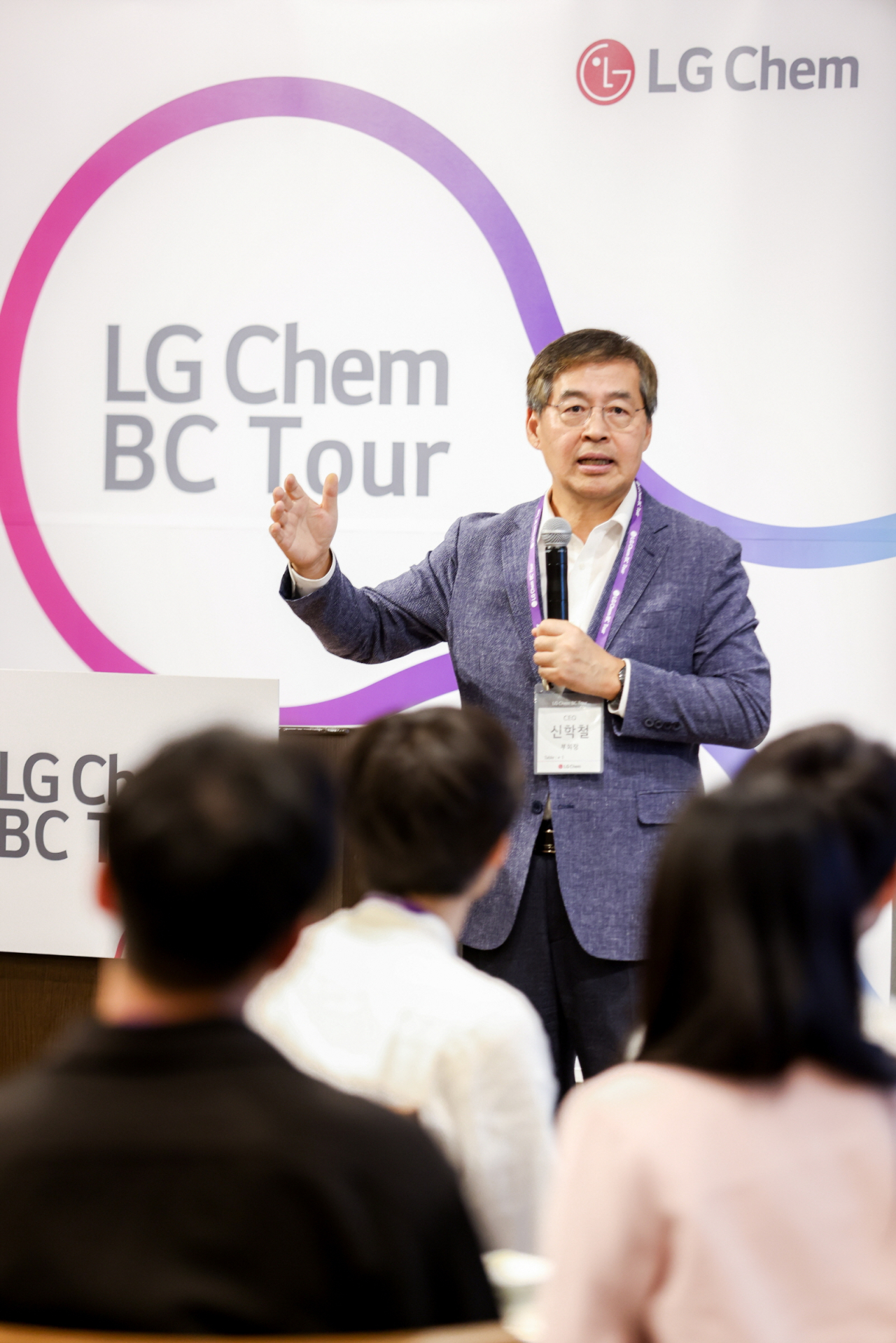
LG Chem CEO Shin Hak-cheol traveled to Japan to host a recruitment event, as the company seeks talent to boost its material, biotechnology and equipment sectors, the chemical firm said Friday.
Shin hosted the “Business and Campus Tour” at the Intercontinental Tokyo Bay Hotel on Thursday, which invited some 40 doctoral candidates and master's students in science and engineering from seven major universities in Japan, including the University of Tokyo and Kyoto University.
“LG Chem is pushing for a grand transition in its business portfolio, to transform from a petroleum-centered firm into a global science company," Shin said.
"I hope you all will join us here at LG Chem, where we constantly challenge ourselves to grow. It will be an opportunity to leap forward in an ever-changing industry."
Shin said the company plans to increase the revenue of its three business areas -- materials, biotechnology and equipment -- to achieve a combined 40 trillion won ($30.6 billion) by 2030.
At the event, the CEO engaged in discussions with attendees and shared insights on the current state of global business affairs. The CEO also introduced the company's vision for a sustainable future.
Company executives also conducted on-site job interviews at the event.
The firm plans to increase the portion of the three businesses in its total revenue, which accounted for 21 percent in 2022, to 57 percent by 2030.


















![[Today’s K-pop] Treasure to publish magazine for debut anniversary](http://res.heraldm.com/phpwas/restmb_idxmake.php?idx=642&simg=/content/image/2024/07/26/20240726050551_0.jpg&u=)